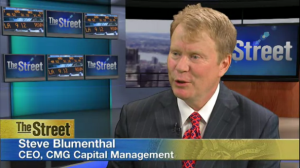moneymakeover
Registered User
- Messages
- 959
Say individual with 12 years to retirement, in today's environment (low bond yields)
What is most/least risky of the main asset classes
What is most/least risky of the main asset classes
Are you saying that global equities have never lost value over a 12 year period?I would venture that nobody has ever lost money.
Earnings/Price has been at it’s current level of circa 6.5%.
Say individual with 12 years to retirement, in today's environment (low bond yields)
What is most/least risky of the main asset classes
Where are you getting that from. It is equal to a P/E of 15.38%, seems lower than my understanding of where the market is.
Are you by any chance using some mean ratio of individual stocks rather than the normal market average ratio.
Are you saying that global equities have never lost value over a 12 year period?
That’s obviously not the case.
Median
The median P/E ratio is hardly helpful. Market returns are arithmetically based on market cap. Current valuations are on the high side in historical terms.
I simply asked for clarification because I am unclear what you are saying. I doubt I’m alone in that regard.Nice selective quote there Sarenco!
I simply asked for clarification because I am unclear what you are saying. I doubt I’m alone in that regard.
You now seem to be predicting a specific market return over some future period based on some price metric relating to the median stock of some index. Is that correct?
I’m not trying to antagonize you, I’m genuinely confused.
You’re just making stuff up and the danger is that people will listen to you. Focussing on an index’s median rather than its mean is best practice, as one can be assured that the valuation metric is not skewed by individual outliers, such as may occur with one-time write-offs or other material accounting trickery. The “markets are expensive/12 years isn’t a long time horizon/put your money in State Savings Bonds” nonsense is as reckless as it is dangerous.

Was trying to understand this as the phrasing of it is very strange especially when you say 'best practice' and just as I thought, you are copying it...….If you are going to take other peoples work, then as least credit the source.
From the source below:
By focusing on the S&P 500® Index’s Median P/E, we can be assured that the valuation metric is not being skewed by individual outliers, such as may occur with one-time write-offs or other accounting maneuvers.

Median P/E As Valuation Indicator - CMG AdvisorCentral
My favorite valuation indicator has long been the Median price to earnings ratio or P/E. The P/E Ratio is the measure of the share price relative to theadvisorcentral.cmgwealth.com
A further disingenuous contribution from you, Sunny, with zero value add. You’ll note that it is not copied, albeit it’s similar, because I’d read the same piece. But then you and your pal, Sarenco, prefer to engage in petty pedantry and point-scoring rather than helping people, which is the primary purpose of this site. For you both, it seems more important to squirm down a meaningless rabbit-hole and win an argument that doesn’t even exist. I for one won’t be engaging with either of you again; it’s simply not worth it and I remain unclear regarding your respective agendas and motives.